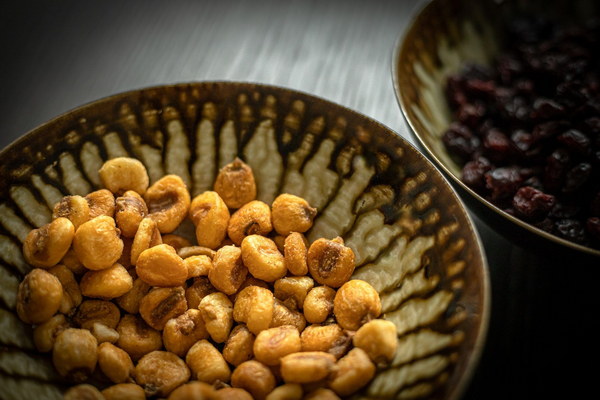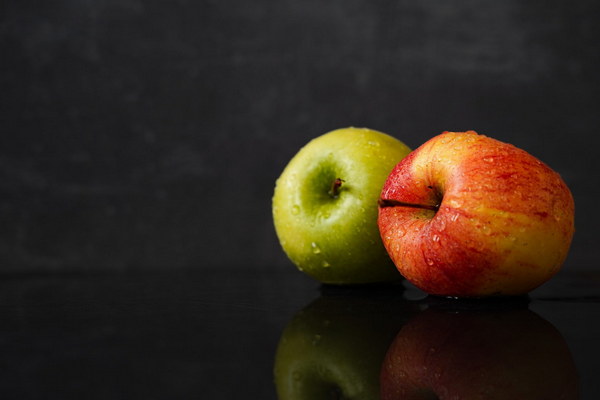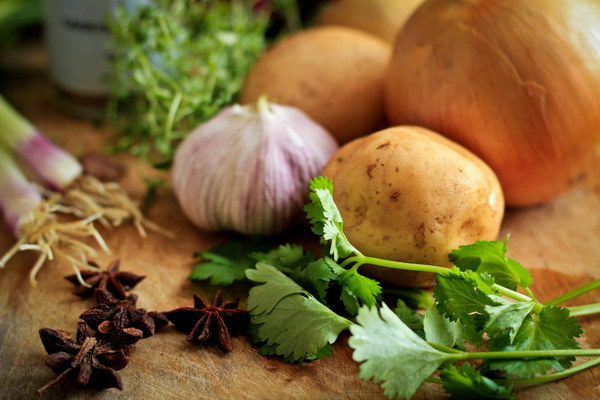The Chinese Herbal Elixir Unveiling the Power of Tonifying Qi, Spleen, Kidneys, and Liver
In the realm of traditional Chinese medicine (TCM), the concept of balancing the body's internal systems is paramount. One of the fundamental principles in TCM is the idea of tonifying the body's essential energies, known as Qi, Spleen, Kidneys, and Liver. This article delves into the world of Chinese herbs that are renowned for their ability to nourish and strengthen these vital organs.
Understanding the Four Pillars of TCM: Qi, Spleen, Kidneys, and Liver
In TCM, the health of the body is closely tied to the balance and harmony of these four fundamental elements:
1. Qi (Chi): Often translated as vital energy, Qi is considered the fundamental life force that animates and gives form to the body. It is the energy that sustains all physiological processes and is the essence of life itself.
2. Spleen: The Spleen in TCM is not only the organ responsible for digestion and absorption of nutrients but also plays a crucial role in the production of blood and the maintenance of the immune system.
3. Kidneys: The Kidneys are the root of one's life force and are responsible for reproduction, growth, and development. They are also closely associated with the bones, teeth, and hair, and are considered the storage house of Qi.
4. Liver: The Liver is in charge of the smooth flow of Qi and blood, ensuring that emotions are balanced and that the body's metabolism runs smoothly. It also plays a role in vision and the maintenance of tendons and ligaments.
Herbal Tonics for Qi, Spleen, Kidneys, and Liver
When seeking to tonify these vital organs, TCM practitioners turn to a variety of herbs that have been used for centuries. Here are some of the most renowned herbal tonics:
1. Ganoderma Lucidum (Reishi): Known for its ability to boost the immune system, Ganoderma Lucidum is a potent Qi tonic that also helps to nourish the Liver and Kidneys.
2. Astragalus (Astragalus membranaceus): A well-known immune-boosting herb, Astragalus is excellent for building Qi and supporting the Spleen and Lung functions.
3. Codonopsis Pilosula (Dang Shen): This herb is a staple in TCM for its Qi-building properties. It is often used to strengthen the Spleen and boost overall vitality.
4. Schisandra Chinensis (Wu Wei Zi): Schisandra is valued for its adaptogenic effects, which help to balance the body’s response to stress. It is believed to tonify all three treasures (Qi, Blood, and Jing) and has a particular affinity for the Liver.
5. Polygonum multiflorum (He Shou Wu): Known for its rejuvenating properties, He Shou Wu is a Kidney and Liver tonic that is often used to improve hair and scalp health.

6. Smilax glabra (Tian Mai): This herb is used to tonify the Kidneys and Spleen, and is believed to enhance fertility and support the body's resistance to aging.
Combining Herbs for Maximum Effect
In TCM, herbs are often combined to create personalized formulas that address an individual's specific needs. For example, a formula designed to tonify Qi and Spleen might include Astragalus and Codonopsis, while one aimed at nourishing Kidneys and Liver could incorporate Schisandra and He Shou Wu.
Conclusion
The use of Chinese herbs for tonifying Qi, Spleen, Kidneys, and Liver is a profound aspect of traditional Chinese medicine. These natural remedies offer a holistic approach to health and well-being, aiming to restore balance and vitality at the deepest levels of the body. As with any health regimen, it is advisable to consult with a qualified TCM practitioner to create a personalized treatment plan that suits your unique constitution and health goals.









